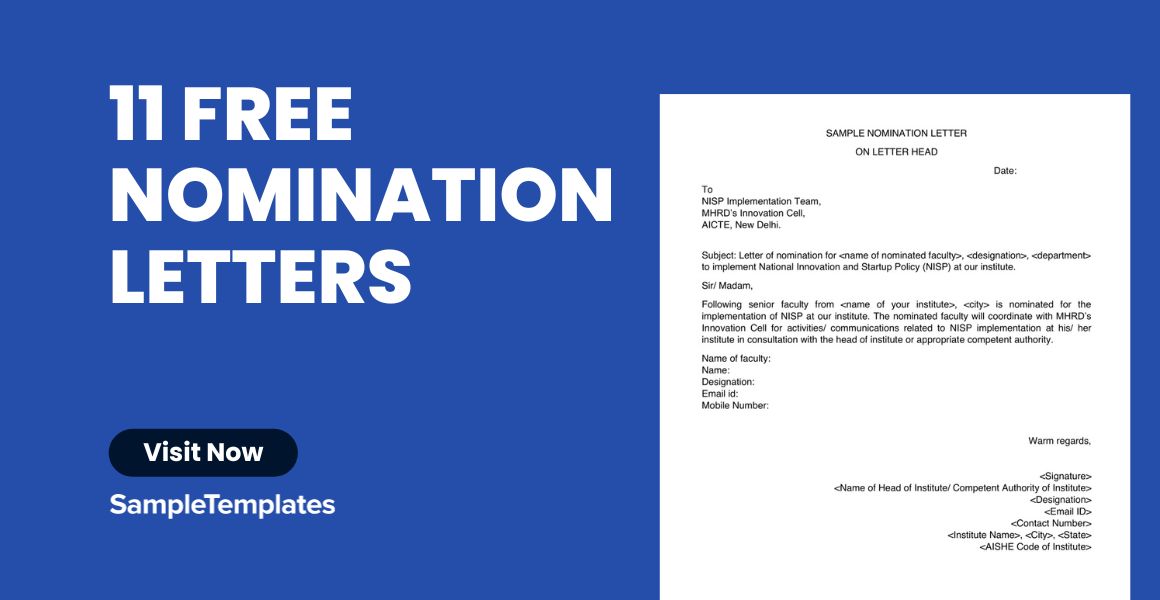

Crafting an effective nomination letter is crucial for endorsing a deserving individual for an award, a leadership position, or any prestigious recognition. Our Sample Nomination Letter Template simplifies this process, offering a well-structured and customizable letter format. With clear guidance on how to highlight the nominee’s achievements, strengths, and qualifications, this template is your go-to resource for creating a compelling nomination. Ideal for various contexts, including corporate awards, educational accolades, or community honors, this template ensures your nomination stands out. Dive into this guide to master the art of nomination writing and make a significant impact with your endorsement.
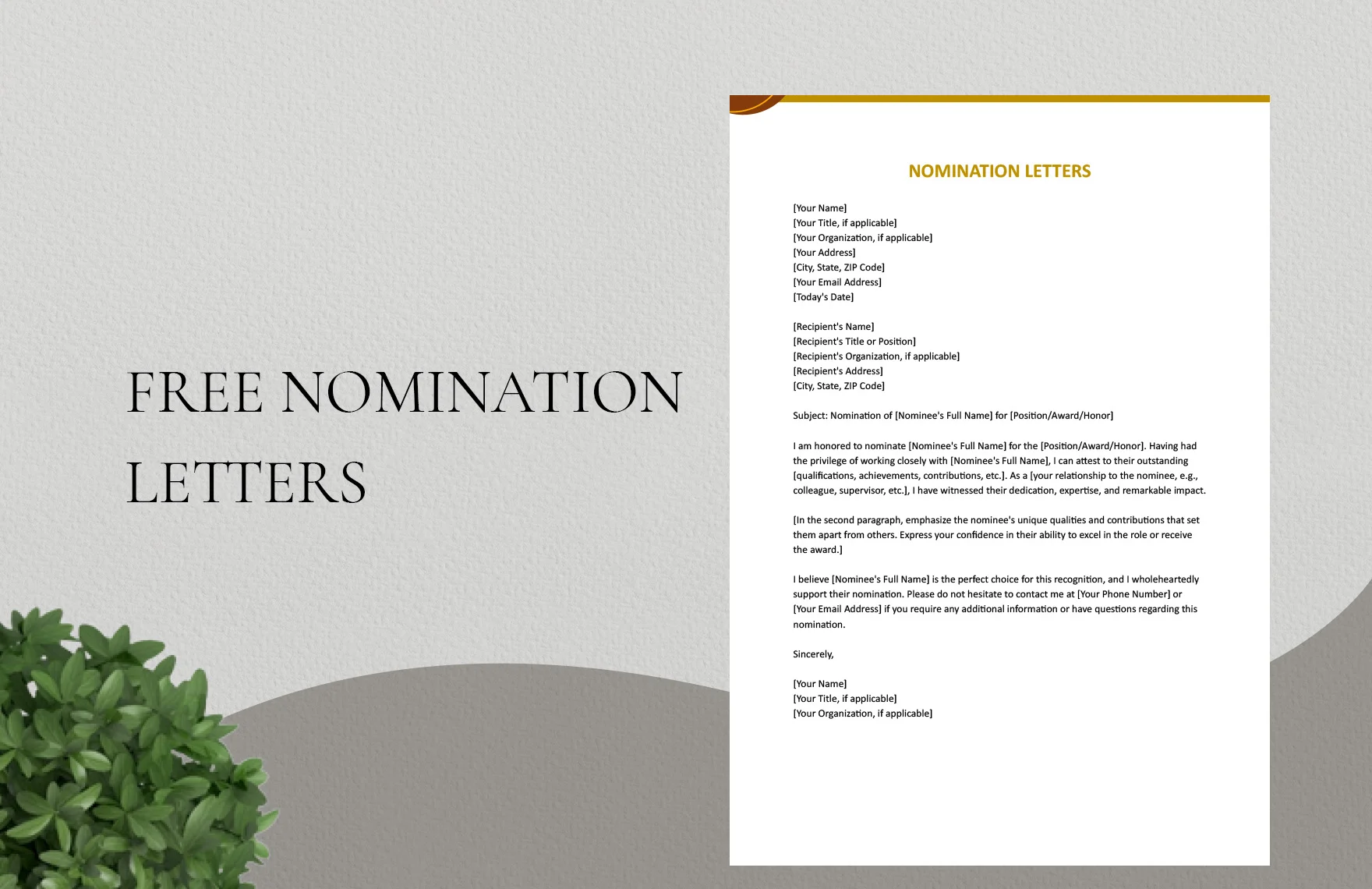
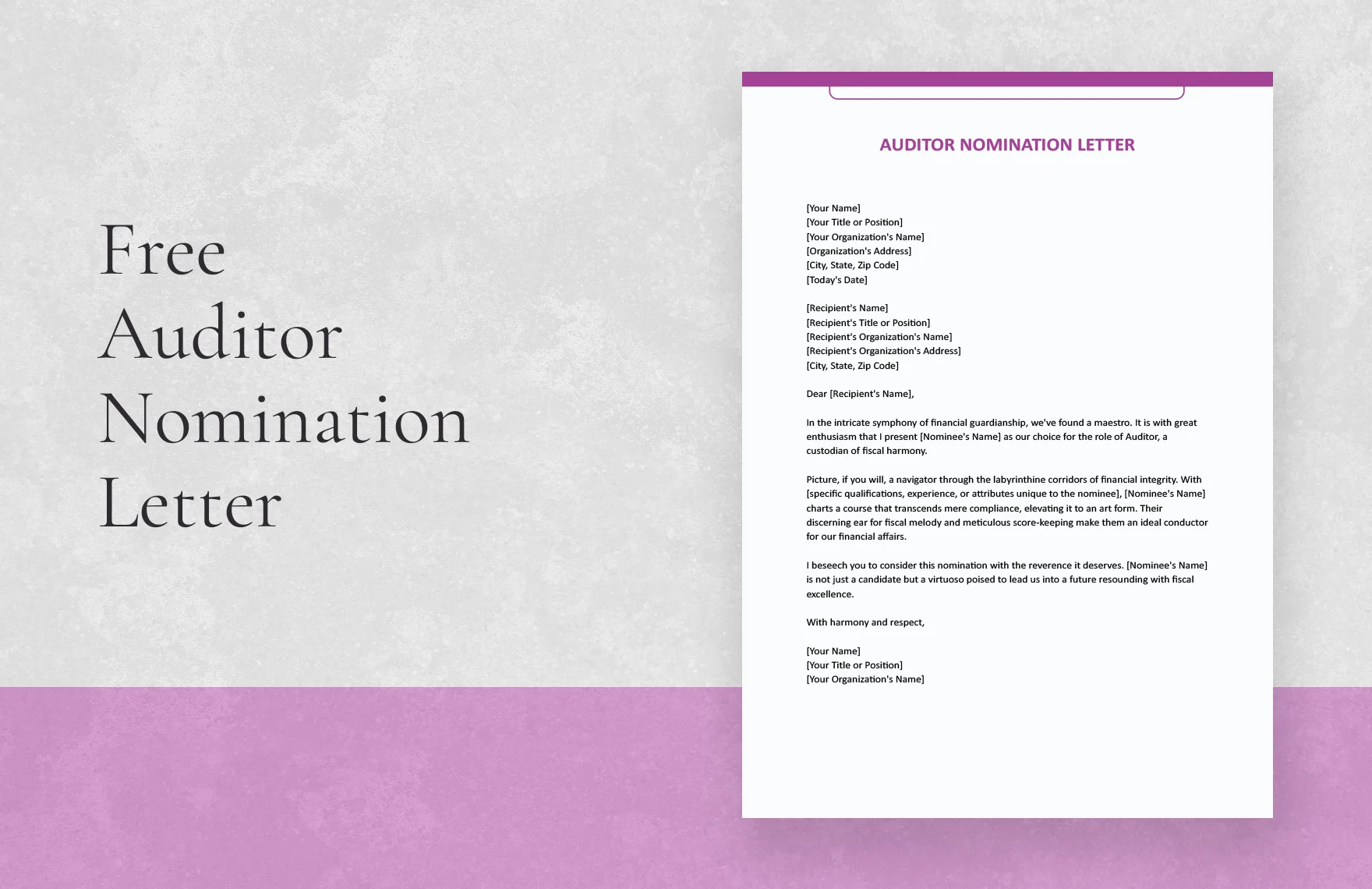
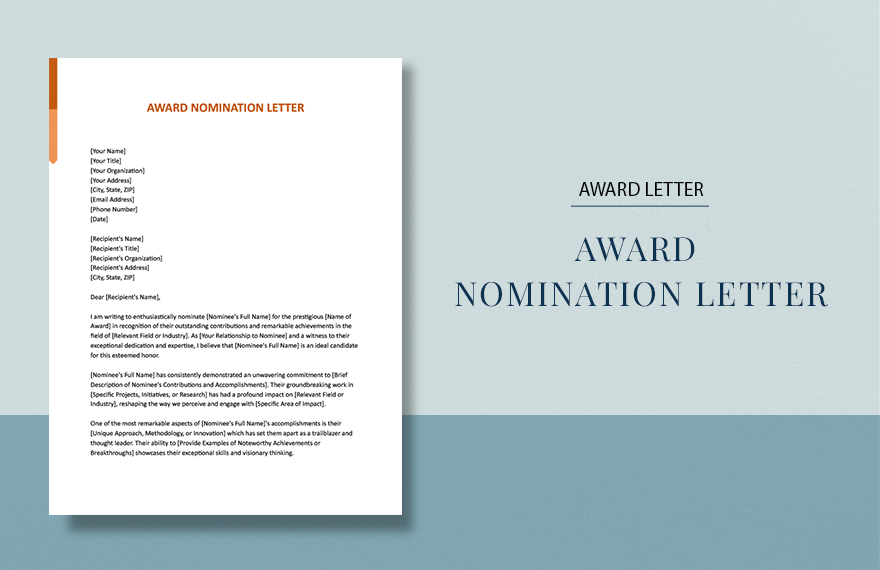
A nomination letter is a formal document used to recommend an individual for a specific award, position, recognition, or opportunity. This letter plays a crucial role in highlighting the nominee’s qualifications, achievements, and suitability for the honor or position they are being considered for. The essence of a nomination letter lies in its ability to persuasively convey the nominee’s merits, making a compelling case for why they stand out as the best candidate.
Typically, nomination letters are written by someone who knows the nominee well and can speak authoritatively about their capabilities and accomplishments. This could be a colleague, supervisor, mentor, or a professional peer. The letter often begins by stating the purpose of the nomination, followed by a detailed account of the nominee’s relevant skills, experiences, and contributions. It’s important to provide specific examples and anecdotes to substantiate the claims made in the letter, as this adds credibility and depth to the nomination.
In addition to outlining the nominee’s achievements, a good nomination letter also sheds light on their personal qualities, such as leadership skills, dedication, creativity, or community involvement. These traits often play a significant role in decision-making processes, especially for awards or positions that value character and personal integrity as much as professional accomplishments.
The tone of a nomination letter should be professional yet enthusiastic, conveying a genuine belief in the nominee’s worthiness. It’s also essential to adhere to any specific guidelines or criteria set by the awarding body or organization, ensuring that the nomination aligns with what they are looking for in a candidate.
A well-written nomination letter not only benefits the nominee but also reflects positively on the writer, showcasing their ability to recognize and advocate for talent. It is an instrumental tool in bringing deserving individuals into the spotlight, giving them the opportunity to gain recognition and further their personal and professional goals.
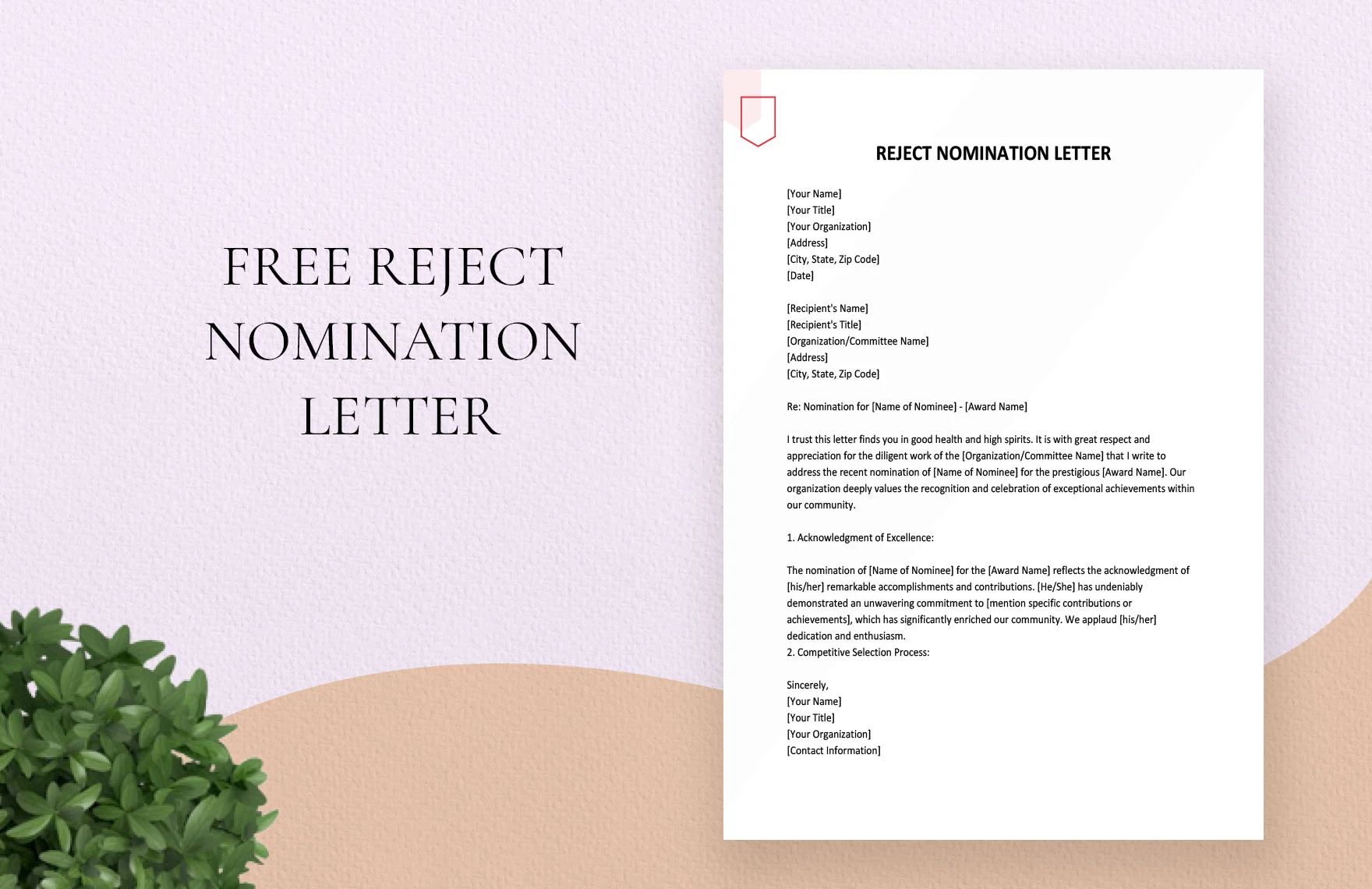
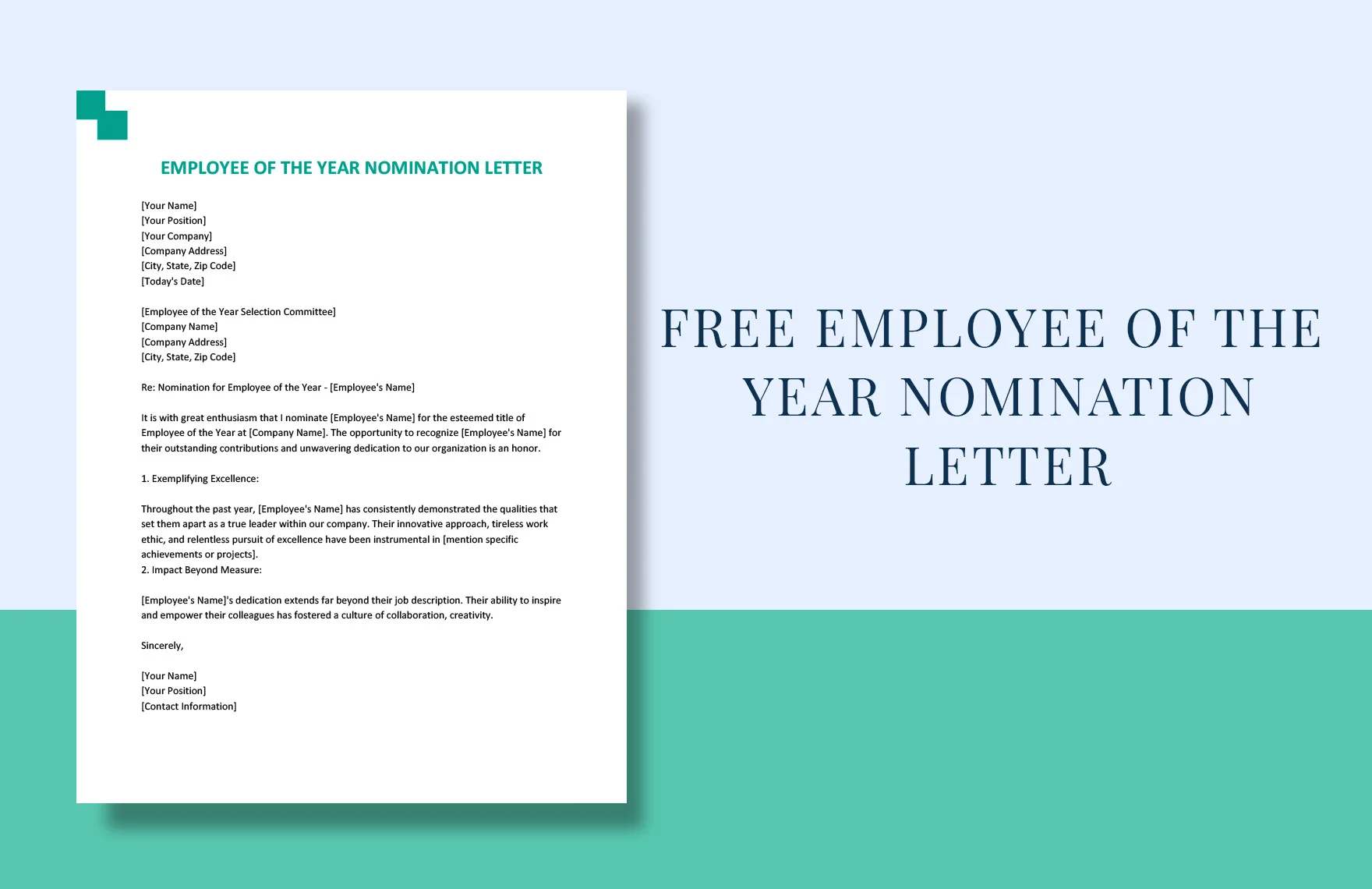
Writing a nomination letter is a significant act that serves multiple purposes, both for the nominee and the nominator. These letters are essential in various settings, from professional to academic and community-based contexts. Here are several compelling reasons to write a nomination letter:
Recognition of Excellence: Nomination letters are a formal way to acknowledge and celebrate someone’s outstanding achievements or contributions. They highlight the nominee’s exceptional work, whether it’s in a professional, academic, or volunteer capacity, bringing deserved recognition to their efforts.
Career Advancement: For professionals, a nomination letter can be a stepping stone to career advancement. Being nominated for awards, positions, or special projects can enhance a professional’s resume, opening doors to new opportunities and career growth.
Boosting Morale and Motivation: Receiving a nomination can significantly boost the morale of the nominee. It serves as a powerful affirmation of their hard work and can be a motivating factor, encouraging them to continue striving for excellence.
Enhancing Visibility: Nomination letters increase the visibility of talented individuals within an organization or industry. This heightened visibility can lead to more opportunities for networking, collaborations, and professional development.
Fostering a Positive Environment: In organizational settings, nominating someone for an award or recognition fosters a positive environment. It shows that excellence is noticed and rewarded, which can encourage a culture of high performance and mutual appreciation.
Strengthening Relationships: Writing a nomination letter can strengthen the relationship between the nominator and the nominee. It demonstrates respect and admiration, building a sense of camaraderie and mutual support.
Encouraging Continuous Improvement: Nomination letters often outline specific achievements and strengths, providing nominees with clear insights into what aspects of their work are most valued. This can guide their future efforts and encourage continuous improvement.
Contributing to Personal Development: For the nominee, being recognized can play a significant role in their personal development. It can boost their confidence and self-esteem, reinforcing their sense of purpose and commitment to their field or community.
Highlighting Role Models: Nomination letters bring attention to role models in various fields. They help in setting benchmarks for excellence and inspire others to emulate the qualities and achievements of the nominees.
Promoting Diversity and Inclusion: By nominating individuals from diverse backgrounds, nomination letters can play a role in promoting diversity and inclusion. Recognizing the achievements of people from various demographics encourages a more inclusive and representative environment.
In summary, writing a nomination letter is a powerful tool for recognizing and promoting excellence. It not only honors the individual achievements of the nominee but also contributes positively to the broader community, organization, or industry by highlighting exemplary models of success and dedication.